Business
The Enemy Within: On NNPCL GMD Bayo Ojulari’s Frenemies
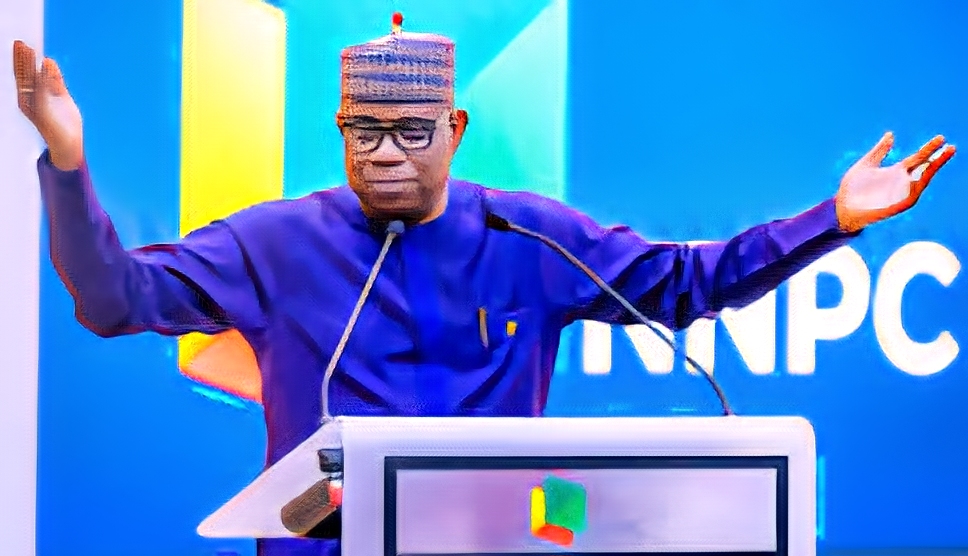
By Lanre Alfred
I have often said that the most dangerous wars are not fought in the deserts of Sambisa or the swamps of the Niger Delta; they are planned over champagne glasses in Maitama lounges, perfected in the conspiratorial corners of Abuja cocktail parties and waged in polished boardrooms.
Power in Nigeria is never left unchallenged, and if you imagine that enemies disappear because you survived one storm, then you are already courting disaster.
Which is why I find myself deeply unsettled by what I hear whispered in hushed tones about Bayo Ojulari, the Managing Director of the Nigerian National Petroleum Company Limited (NNPCL)....click link for details
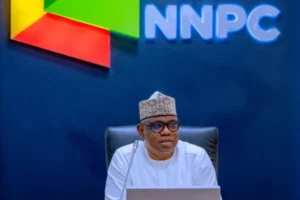
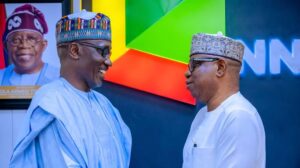
He believes, so I hear, that the storm around him has passed. He assumes that because he has not been dragged into yet another public scandal in recent weeks, the vultures have abandoned their hunt.
Nothing could be further from the truth. If anything, the vultures are circling closer, hungrier, and deadlier than before.
And I say this with the conviction of one who has lived long enough in high society’s theatre of intrigue to know that the fiercest daggers are not wielded by enemies at the gate but by friends at the table.
The storm around Ojulari is not over, it has only gone underground. The cabal that once sought his head has not retired to the shadows in defeat; they have regrouped, reorganised, and this time, their playbook is sharper.
The story making the rounds in select Abuja drawing rooms is chilling. A high-ranking member of Ojulari’s own management team, yes, a man who sits across from him in meetings, who addresses him as “sir” with practiced deference, has now become the lead conspirator. This individual, from what I am told, has positioned himself as the mole, the inside man, feeding external traducers with information, documents, and ammunition that could destabilise Ojulari’s tenure.
This is the cruel irony of power: the most dangerous enemy is always the one who knows your schedule, your weaknesses, your blind spots. I do not envy Ojulari. Imagine sitting in a boardroom, trading jokes with a man who has already drafted your obituary in the corridors of influence.
But Abuja is Abuja. Here, betrayal is not a character flaw; it is a survival tactic. And if Ojulari is not yet fully awake to this reality, then the next ambush may very well end his career.
Unlike the first round of attacks, which were noisy and visible, this fresh batch of assaults is being fine-tuned to be surgical. I have heard whispers of dossiers, files thick with allegations, some perhaps exaggerated, others entirely fabricated.
These dossiers, according to insiders, are being prepared to be leaked to the media and the power brokers who matter, those who have the ears of President Bola Tinubu.
And make no mistake, Abuja thrives on perception. In this city, a rumour repeated often enough acquires the texture of fact. A rumour in Asokoro can become a headline in Lagos within 24 hours. By the time Ojulari hears the story, it may already be too late.
Pundits are quick to say this is the cabal fighting back. And they are right. Nigeria’s oil and gas industry has never been a playground for the fainthearted. The entrenched interests who feel sidelined by Ojulari’s policies are not the type to lick their wounds quietly. They are used to getting their way; they are used to cutting deals in the dark. For them, Ojulari is an inconvenient roadblock, a man whose tenure threatens the delicate balance of influence that has lined pockets for decades.
So, of course, they want him out. And, of course, they will not stop until they achieve it. But the intrigue takes a darker twist when you consider the speculation that if Ojulari has soiled his hands even slightly; by signing off on a questionable contract, overlooking a misstep, or failing to cover his tracks, the cabal will weaponise that evidence against him. In other words, if he has given them a nail, they will build a coffin around it.
What unsettles me most is not the cabal, it is the fact that the betrayal is internal. Abuja society is full of stories like this. I recall a certain parastatal head who, believing he had defeated his enemies, threw a lavish party at the Hilton, only to discover months later that the man leading the charge to remove him was the “loyal subordinate” who toasted him at the event. History is full of such tragedies.
The lesson is simple: the enemy within is always deadlier than the enemy outside. Outside enemies may threaten, but inside enemies are deadlier.
If I were in Ojulari’s shoes, I would not sleep with both eyes shut. I would first tighten my house, conduct loyalty checks, and identify the moles. It is not paranoia, it is survival. Every empire has fallen because the emperor trusted the wrong man at the wrong time.
Second, Ojulari must embrace transparency like a shield. The moment a fresh rumour or narrative is launched, he must counter it with facts. Delay is fatal. In Abuja’s gossip economy, silence is rarely golden; it is a death sentence.
Third, and perhaps most importantly, he must reposition himself as indispensable to President Bola Ahmed Tinubu’s larger economic reforms. Because in this city, relevance trumps innocence. If Tinubu sees him as integral to his oil and gas vision, the cabal’s darts may bruise but they will not bury him.
Permit me, at this juncture, a detour into the cocktail circuit, because that is where much of this war is being plotted. I was recently at a dinner in Maitama where a senator leaned over his wine glass and said, “Ojulari does not know what is coming.” The table chuckled knowingly. This is how Abuja operates; wars are fought with official memos and in coded jokes at private dinners.
In Wuse II lounges, among the city’s nouveau riche, the talk is already that Ojulari is a marked man. Some believe he will not last the year; others insist Tinubu will protect him because “Baba does not like to be seen as succumbing to blackmail.” But the fact that his fate is a topic of casual conversation at high-society gatherings tells you everything; you are only safe in Abuja when nobody is talking about you.
Ojulari’s case is a reminder of how fragile power is in Nigeria. Today, you are celebrated with front-page photographs and glowing press releases. Tomorrow, you are the subject of a leaked dossier, your name smeared in WhatsApp groups, your allies deserting you one by one.
I remember the story of a certain former minister, a man once hailed as the “star boy” of his administration. One day, he was the darling of the President; the next, he was left out in the cold, betrayed by those he thought loyal. Abuja does not do permanent friends, it only does permanent interests.
And so, I return to my refrain: the storm is not over. It has only gone quiet, and quiet storms are the deadliest. Bayo Ojulari must not be lulled into a false sense of security. The enemy is not at the gate, the enemy is in his team. And unless he sharpens his instincts, fortifies his alliances, and stays two steps ahead, he may yet be unceremoniously booted out of office.
Source: Thecapitalng
Business
Black Market Naira To Dollar Exchange Rate Today 12th January 2026

What is the Dollar to Naira Exchange rate at the black market, also known as the parallel market (Aboki fx)?
You can swap your dollar for Naira at these rates.
How much is a dollar to naira today in the black market?
The exchange rate for a dollar to naira at Lagos Parallel Market (Black Market) players buy a dollar for N1490 and sell at N1505 on Sunday, 11th January 2026 according to sources at Bureau De Change (BDC).
Black Market Exchange Rate Today 12th January, 2026
Buying Rate N1485
Selling Rate N1500
The exchange rate between the US dollar (USD) and the Nigerian naira (NGN) which rate we have given above; is a topic of high constant interest for people who are Nigerian and businesses and policymakers in Nigeria.
This rate of dollars to naira exchange rate influences not only the cost of imported goods but also the cost of travel, international education, and even local prices of certain commodities.
Please note that the Central Bank of Nigeria (CBN) does not recognize the parallel market (black market), as it has directed individuals who want to engage in Forex to approach their respective banks.
Business
BREAKING: Petrol Depot Owners Crash Prices To Cheapest; Details Emerge
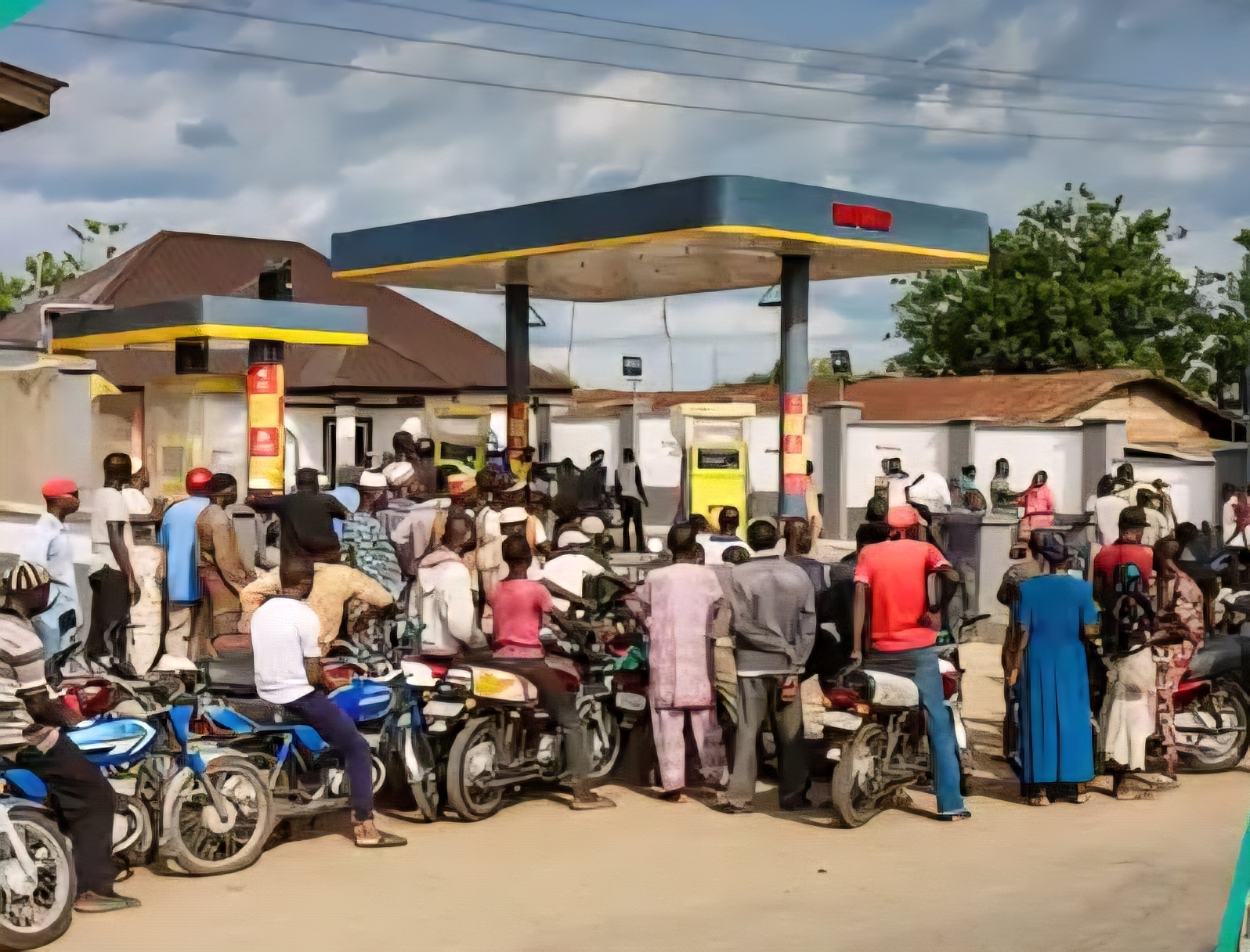
Petrol prices at Nigerian depots have dropped to their lowest levels in months as intense competition grips the downstream market, following the apparent collapse of the fuel supply agreement between the Dangote Petroleum Refinery and independent marketers.
Fresh findings show that depot owners have slashed ex-depot prices to as low as N710 per litre, a sharp reversal from the steep hikes recorded just weeks earlier.,
In the first week of January 2026, depot owners sharply increased gantry prices after reports emerged that the Dangote Refinery had shut down its petrol production unit for maintenance.
Although the refinery denied the reports, the speculation was enough to jolt the market.
Depot prices surged, and the increases quickly filtered through to filling stations nationwide.
Independent marketers raised gantry prices from around N720 per litre to over N800 per litre, with analysts noting that depot operators were exploiting uncertainty surrounding Africa’s largest refinery.
Depot owners reverse course as competition intensifies
The price spike, however, has proven short-lived.
Checks reveal that depot owners have now reversed course, cutting prices aggressively to stay competitive with Dangote Refinery’s pricing structure, especially as fresh fuel imports enter the Nigerian market.
Data from PetroleumPriceNG shows that several major depots reduced prices significantly in recent days.
As of Sunday, January 11, 2026, ShellPlux sold petrol at N710 per litre, MAO at N715, while A.Y.M.
Falling crude oil prices add more pressure
Energy experts say global oil market dynamics are also contributing to the decline in local petrol prices.
“Crude oil is currently trading between $50 and $60 per barrel in the international market,” energy policy analyst Adeola Yusuf told Legit.ng.
According to him, ongoing geopolitical tensions involving Venezuela and Iran have pushed crude prices lower, with direct implications for refined fuel costs.
“Crude oil is often used as a political tool and is highly sensitive to geopolitical developments. When prices drop, refined product prices usually follow, especially in domestic markets,” Yusuf explained.
Business
Good News: Cooking Gas Prices Drop As LPG Supply Improves Across Nigeria
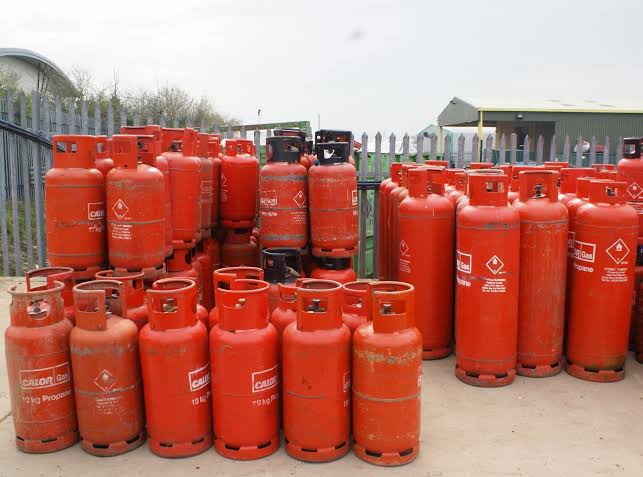
Prices of liquefied petroleum gas (LPG), commonly known as cooking gas, are crashing in several parts of the country as retailers report improved supplies.
According to a market survey by PUNCH, retailers and consumers confirmed that prices have dropped and the product has become more available across the country.
This development follows months of scarcity, which led to a nationwide hike in prices. The scarcity peaked in September 2025.
Consumers in Lagos, Ogun, Oyo and other states confirmed that they purchased cooking gas within the N1,050 to N1,400 range. Some major marketers were also reported to be selling directly to consumers at around N900 per kilogramme.
For many households, the current prices represent a significant improvement from the sharp increases recorded last year, when LPG prices surged after a dispute involving the Dangote refinery and the Petroleum and Natural Gas Senior Staff Association of Nigeria (PENGASSAN) led to the shutdown of some gas facilities.
Despite the improvement, several consumers said they were hopeful that prices would fall below N1,000 per kilogramme in the new year, arguing that lower costs are critical to promoting clean cooking and reducing reliance on firewood and kerosene.
Speaking on the situation, the National Chairman of the Liquefied Petroleum Gas Retailers branch of the Nigeria Union of Petroleum and Natural Gas Workers (NUPENG), Ayobami Olarinoye, said the LPG market had become relatively stable, with increased supply reaching Lagos.
According to Olarinoye, some off-takers are now receiving gas in Apapa, Lagos, helping to ease availability challenges experienced in previous months.
He explained that retail prices at street-level outlets currently range between N1,300 and N1,400 per kilogramme, noting that costs vary based on neighbourhoods, transportation and logistics.
Olarinoye added that prices could be lower at filling stations and gas plants, where operational and distribution costs are reduced.
He further disclosed that retailers currently purchase LPG from major marketers at prices between N960 and N1,050 per kilogram, depending on the supplier. According to the NUPENG official, sellers offering LPG below N1,000 per kilogramme are typically major dealers who own their own plants and sell directly to end users and do not distribute to retailers.
-
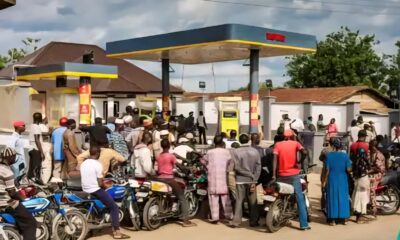
 Business19 hours ago
Business19 hours agoBREAKING: Petrol Depot Owners Crash Prices To Cheapest; Details Emerge
-

 News2 days ago
News2 days agoBuhari’s Ex-Minister Pantami Breaks Silence Over Alleged Wedding Plan With Aisha Buhari
-
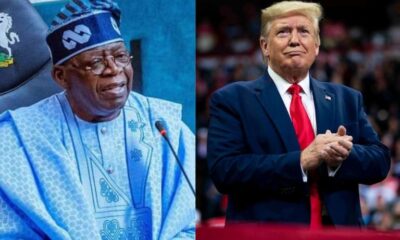
 News1 day ago
News1 day ago“Do Not Test Trump’s Resolve”: US Issues Fresh Threat To Nigeria
-

 Entertainment1 day ago
Entertainment1 day agoSO SAD: Actress and Content Creator Sunshine D!es After Surgery; Details of Last Moment Trends
-

 Sports2 days ago
Sports2 days agoAFCON: Nigerian Billionaire Splashes Dollars On Super Eagles
-

 Lifestyle2 days ago
Lifestyle2 days agoChimamanda: Heartbreaking Details About What Killed Author’s Late Son Emerge
-
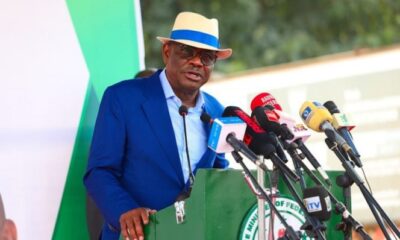
 Politics7 hours ago
Politics7 hours agoFCT Minister Wike Reacts To Call For Tinubu To Sack Him
-
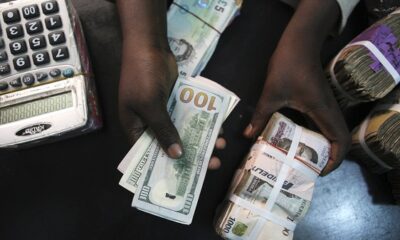
 Business3 hours ago
Business3 hours agoBlack Market Naira To Dollar Exchange Rate Today 12th January 2026






